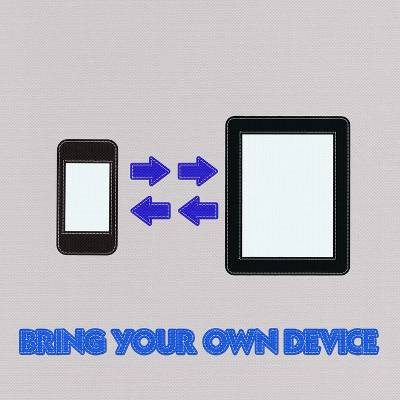 A couple of big names stand out when it comes to hacking attacks, but the recent Sony hack has really taken the cake. The GOP, who call themselves the “Guardians of Peace,” have exposed a ton of details to the public, including the company’s budget, their plans for layoffs, and 3,800 employee Social Security numbers. Now, they’ve released even more information; this time, it’s leaked personal emails, and judging from the content of them, Sony never wanted them to see the light of day.
A couple of big names stand out when it comes to hacking attacks, but the recent Sony hack has really taken the cake. The GOP, who call themselves the “Guardians of Peace,” have exposed a ton of details to the public, including the company’s budget, their plans for layoffs, and 3,800 employee Social Security numbers. Now, they’ve released even more information; this time, it’s leaked personal emails, and judging from the content of them, Sony never wanted them to see the light of day.
Macro Systems Blog
 Most search engines are pretty good at keeping malicious websites out of your search results, but just like any other piece of software on your computer, some search engines do a better job of keeping these threats out of your immediate access. According to TV-Test, a German independent testing lab, there’s a huge difference between the security of the world’s top search engines, like Bing and Google.
Most search engines are pretty good at keeping malicious websites out of your search results, but just like any other piece of software on your computer, some search engines do a better job of keeping these threats out of your immediate access. According to TV-Test, a German independent testing lab, there’s a huge difference between the security of the world’s top search engines, like Bing and Google.
 Business owners primarily concentrate more on the digital effects of hacking rather than the physical side of it. After all, hacking some code through a network can’t harm you or anybody else in the real world, right? Wrong. As shown by a recent hack in Germany, ignoring network security can be a dangerous gambit.
Business owners primarily concentrate more on the digital effects of hacking rather than the physical side of it. After all, hacking some code through a network can’t harm you or anybody else in the real world, right? Wrong. As shown by a recent hack in Germany, ignoring network security can be a dangerous gambit.
 Public computers are like public restrooms. You really don’t want to use them unless you absolutely have to. Coincidentally, the reason to avoid each public service is the same; viruses--both of the biological and the digital variety. Thankfully, there’s a way to sanitize your data so that you can safely use a public PC.
Public computers are like public restrooms. You really don’t want to use them unless you absolutely have to. Coincidentally, the reason to avoid each public service is the same; viruses--both of the biological and the digital variety. Thankfully, there’s a way to sanitize your data so that you can safely use a public PC.
 In the past, we’ve been known to go into detail about threats, vulnerabilities, and how to protect your business while online. Distributed denial of service (DDoS) attacks aren’t new in the technology world, but notorious hacking group Lizard Squad has somehow managed to take out Internet service for much of Sweden with a faulty DDoS attack; an unprecedented feat, especially for a ragtag group of irate gamers.
In the past, we’ve been known to go into detail about threats, vulnerabilities, and how to protect your business while online. Distributed denial of service (DDoS) attacks aren’t new in the technology world, but notorious hacking group Lizard Squad has somehow managed to take out Internet service for much of Sweden with a faulty DDoS attack; an unprecedented feat, especially for a ragtag group of irate gamers.
 The holiday shopping season is upon us and more people are choosing to shop from the comforts of their home PC or mobile device rather than fight the crowds. Shopping online is super convenient, but it’s not without the risk of identity theft. The best way to protect your digital shopping cart from hackers is to know how to safely shop online. We’ll show you how.
The holiday shopping season is upon us and more people are choosing to shop from the comforts of their home PC or mobile device rather than fight the crowds. Shopping online is super convenient, but it’s not without the risk of identity theft. The best way to protect your digital shopping cart from hackers is to know how to safely shop online. We’ll show you how.
 Have you ever wondered how hackers become hackers in the first place? How are tools readily available to them? Business owners might be reluctant to find out that hacking has become easier than ever over the past decade. This is partly due to the increased sophistication of the black market known to some as the Darknet.
Have you ever wondered how hackers become hackers in the first place? How are tools readily available to them? Business owners might be reluctant to find out that hacking has become easier than ever over the past decade. This is partly due to the increased sophistication of the black market known to some as the Darknet.
 In these times, passwords are losing their effectiveness. Hackers can now input millions of passwords every second to crack your code. Even now, professionals are working on new solutions which can jumpstart online security. While using a password is still an ideal choice, there are plenty of other options that are being discussed in the two-factor authentication field.
In these times, passwords are losing their effectiveness. Hackers can now input millions of passwords every second to crack your code. Even now, professionals are working on new solutions which can jumpstart online security. While using a password is still an ideal choice, there are plenty of other options that are being discussed in the two-factor authentication field.
 Our minds often attribute unexplained phenomena with hauntings from ghosts. Most of the time, there's a perfectly good scientific explanation for what's going on. If you ever see your computer's cursor move on its own, your PC isn't haunted. Although, you might prefer a haunting to what's really happening; a hacker is probably stealing your data. Now that's scary!
Our minds often attribute unexplained phenomena with hauntings from ghosts. Most of the time, there's a perfectly good scientific explanation for what's going on. If you ever see your computer's cursor move on its own, your PC isn't haunted. Although, you might prefer a haunting to what's really happening; a hacker is probably stealing your data. Now that's scary!
 With the Internet of Things connecting more devices to the Internet, these devices can potentially be turned to nefarious use. Despite all of the benefits of the Internet of Things, like big data analytics, anything connected to the Internet is threatened by cyber crime to at least some degree. In fact, some professionals believe that the Internet of Things will usher in an era of new types of cyber crime; murder included.
With the Internet of Things connecting more devices to the Internet, these devices can potentially be turned to nefarious use. Despite all of the benefits of the Internet of Things, like big data analytics, anything connected to the Internet is threatened by cyber crime to at least some degree. In fact, some professionals believe that the Internet of Things will usher in an era of new types of cyber crime; murder included.
 As a business owner, you have an obligation to keep your data and network files safe from prying eyes and criminals. The latest threats, like the new Cryptowall 2.0 ransomware, can be a difficult hurdle to jump, especially when they are disguised and designed to ruin you. Thankfully, you don’t have to take on these threats alone.
As a business owner, you have an obligation to keep your data and network files safe from prying eyes and criminals. The latest threats, like the new Cryptowall 2.0 ransomware, can be a difficult hurdle to jump, especially when they are disguised and designed to ruin you. Thankfully, you don’t have to take on these threats alone.
 A new threat, dubbed Sandworm by iSight Partners, has been discovered. It is a cyber espionage campaign dating back to at least 2009, and is said to be based in Russia. Sandworm uses a previously undiscovered zero-day vulnerability in Windows operating systems to steal information from government leaders and organizations.
A new threat, dubbed Sandworm by iSight Partners, has been discovered. It is a cyber espionage campaign dating back to at least 2009, and is said to be based in Russia. Sandworm uses a previously undiscovered zero-day vulnerability in Windows operating systems to steal information from government leaders and organizations.
 When it feels like everybody is out to get you, there's only one way to survive: Trust nobody. You may not have too many physical enemies ready to jump you, but there's an army of hackers wanting to breach your company's database. One of the securest ways to keep your company's information safe is to implement a "zero trust" network security model.
When it feels like everybody is out to get you, there's only one way to survive: Trust nobody. You may not have too many physical enemies ready to jump you, but there's an army of hackers wanting to breach your company's database. One of the securest ways to keep your company's information safe is to implement a "zero trust" network security model.
 Everything changes in due time. Computers grow less secure, malware grows more sophisticated, and hackers' methods change. According to Processor magazine, 80 to 90 percent of attacks are targeted at devices rather than networks and servers. Just like the weakest link in a fence, all it takes is one weak point for a hacker to take down your entire network.
Everything changes in due time. Computers grow less secure, malware grows more sophisticated, and hackers' methods change. According to Processor magazine, 80 to 90 percent of attacks are targeted at devices rather than networks and servers. Just like the weakest link in a fence, all it takes is one weak point for a hacker to take down your entire network.
 For the past 12 years, the Harkonnen Operation has plagued Europe. The malware campaign, operating scams in Germany, Switzerland, and Austria since 2002, has finally ended, but that doesn't change the fact that it may be the most long-lived malware to have existed. What kept security firms from discovering these attacks and preventing them for so long?
For the past 12 years, the Harkonnen Operation has plagued Europe. The malware campaign, operating scams in Germany, Switzerland, and Austria since 2002, has finally ended, but that doesn't change the fact that it may be the most long-lived malware to have existed. What kept security firms from discovering these attacks and preventing them for so long?
 Bring Your Own Device (BYOD) has been a hot IT trend for the past few years. Initially, everybody loved the idea of workers using their personal smartphone for work and organizations were quick to adopt BYOD. Now, after years of trying out the policy, companies and employees are having reservations about BYOD, making some even long for the days of Blackberry.
Bring Your Own Device (BYOD) has been a hot IT trend for the past few years. Initially, everybody loved the idea of workers using their personal smartphone for work and organizations were quick to adopt BYOD. Now, after years of trying out the policy, companies and employees are having reservations about BYOD, making some even long for the days of Blackberry.
 When diagnosing your computer's security problems, it should be noted that malware is not always located on the PC itself. A lot of the time, problems could be occurring in a number of different operating systems and browsers, making it difficult to diagnose the cause. A recent study by Ronald Kaplan and Dylan Kaplan proved that malware can be located not only on your computer and devices, but even on your wireless router.
When diagnosing your computer's security problems, it should be noted that malware is not always located on the PC itself. A lot of the time, problems could be occurring in a number of different operating systems and browsers, making it difficult to diagnose the cause. A recent study by Ronald Kaplan and Dylan Kaplan proved that malware can be located not only on your computer and devices, but even on your wireless router.






